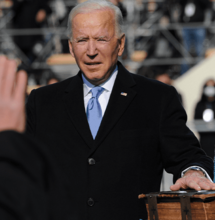Pennsylvania Pot Progress

Pennsylvania is the latest American state attempting to relax its Cannabis policies.
Pennsylvania is the latest American state attempting to relax its Cannabis policies.
The birthplace of American democracy, Philadelphia, has added another triumph to its storied history by becoming the largest city in America to decriminalize Cannabis possession. However, the push to legalize state-wide medical Cannabis in Pennsylvania may not pose such an easy victory.
|
Mayor Michael Nutter of Philadelphia [Credit: Jemal Countess via Getty Images/AFP] |
Philadelphia Decriminalizes Pot Possession
Earlier this month, Philadelphia mayor Michael Nutter announced that he would sign a bill designed to decriminalize the possession of personal amounts of Cannabis. Not only would this make Philly the largest city in the United States to decriminalize possession of less than thirty grams of pot, but more importantly, it would decrease the penalty for such an offense from jail time to a twenty-five-dollar ticket. Smoking in public would incur a ticket of $100, which could be expunged through completion of nine hours of community service. Infractions would result in an appearance before the Municipal Court, but no criminal record would result.
The vote was passed through the city council thirteen to three. The new penalties, which will take effect on the twentieth of October, replace the former punishment of fines of at least $200 and a permanent arrest record. In addition, those convicted were formerly required to attend drug abuse 'courses', said to take place in the form of watching a widely ridiculed video on the dangers of drug use.
Previously, Mayor Nutter had voiced his disapproval of the bill, insisting that the city had more pressing issues on which to focus than removing the criminality from Cannabis use. He also chastised the City Council for approving the decriminalization efforts back in June, which effectively forced the issue into the spotlight.
James Kenney, author of the bill and a city councilman, had proposed that Mayor Nutter sign in order to lessen the strain on the police - and the court system - during the busy summer season, financially relieving the force and freeing up time to focus upon more serious offenses. Kenney, a possible future mayoral candidate, suggested that up to four million dollars could be saved annually by the passage of the bill, in addition to several thousand fewer arrests for pot possession.
Nutter had disagreed, claiming to CBS Philadelphia that, "People in this city... come up to me all the time asking about jobs, asking about housing, or asking about their children's education, or can we provide more services.
"No one has come up to me asking, 'Can you make it easier for me to stand on a street corner in front of some grandma's house and smoke my joint?' So let's be realistic here."
The mayor had also pointed out that implementation would not be immediate and therefore would not provide much-needed summertime relief to an already overtaxed police force, as he had had until the eleventh of September to make the decision. The wording of the bill includes an edict that it be implemented within three months of signing.
While lessening the burden on strained resources was a primary impetus behind the formation of the bill, racial disparity in Philadelphia's policing system provided much fuel for the fire of decriminalization. Although Mayor Nutter disagrees that there is a race-related problem with the city's stop-and-frisk program, which many say unfairly targets people of color who are then arrested disproportionately to whites, the ACLU has been monitoring the area for three years and agrees that the issue is a real and pressing one. Councilman Kenney told the New York Times that blacks and Latinos comprise eighty-three percent of the four-thousand annual Cannabis possession arrests in Philadelphia.
Additionally, the fact that weed remains illegal across the state of Pennsylvania poses further issues, on top of fears that police will simply choose not to enforce the new legislation. Violation of state law continues to carry a penalty including a permanent criminal record, fines of up to $500 and thirty days in jail. In order to drum up public support for the bill, Kenney worked with African-American community organizations, such as the clergy and media groups, in addition to Law Enforcement Against Prohibition (LEAP) - a pro-pot organization of retired and current cops working to both publicize the failure and harmful effects of the drug war and also to assist communities in implementing drug policies that actually work and benefit society.
Ultimately, Mayor Nutter decided to sign the bill in an effort to reduce the amount of lives seriously harmed or outright destroyed due to Cannabis charges for what effectively are minor infractions. The decision was not made without compromise, however. Kenney and Nutter agreed that the proposed possession parking ticket approach should not under-emphasize the citation, which would instead be known as a 'non-summary civil offense.' Nutter contributed the suggestion of a $100 fine for public smoking.
|
Philadelphia councilman James Kenney [Credit: Jeff Meade/WikiMedia Commons] |
Kenney celebrated the victory, declaring that, "We've gotten to a place where it is out of the criminal realm. There's no more handcuffs, no more bookings, no more criminal record. Police will not have to leave their posts and go to the station house to deal with this. People will pay a fine based on the offense: twenty-five dollars for the possession of anything under an ounce."
He further explained to KYW Newsradio, "There will be no criminal record for an individual. And that's a major step. We have so many people that we are putting in the prison pipeline, and the poverty pipeline, because a criminal record is a debilitating thing."
Councilman Kenney was lauded by the mayor for his efforts in authoring the bill, and also for making the mayor realize what positive effects decriminalization could have upon the city, by comparing and considering similar efforts made in other American cities.
Nutter was careful to point out that people should not confuse decriminalized Cannabis possession with condoned pot use: "This is about how we deal with penalties in that regard. And there will be penalties. There's a consequence to people violating the law."
However, the mayor agreed that easing up on weed laws would ultimately be a good thing for Philadelphia, saying, "I think the agreement ends up putting the city and our citizens in a much better place."
Medical Marijuana in Pennsylvania
While the decriminalization movement has enjoyed a modest success, the advancement of medical Cannabis in the Keystone State may not fare as well. On the twenty-fourth of September, the Compassionate Use of Medical Cannabis Act (Senate Bill 1182) was passed with bi-partisan support by the Pennsylvania Senate. The state's House will be the next stop, one expected by many to pose a roadblock for the full passage of the bill.
Reactions to the Senate approval of S.B. 1182, sponsored by Lebanon County Republican Senator Mike Folmer, have been mixed. Medi-weed activists, and some tired politicians, have lauded the move as a definite victory for introducing medical Cannabis access to needy patients in PA. However, the version of the bill that garnered a vote of forty-three to seven was a pared-down interpretation that has prompted a public outcry about politicking and fairness.
As would be expected, patients will be able to patronize dispensaries and product lines run and stocked by approved business owners, manufacturers and growers, all of which would require licensing and would be monitored by state boards and committees.
|
Under the proposed bill's restrictions, smoking and vaporizing medical marijuana will not be legal |
However, unlike in other states such as California, where potential pot patients typically secure a prescription for medical Cannabis from their doctor, PA patients will need to petition the Department of Health for a spot in the medi-weed database. A doctor-provided certification of a specific diagnosis and recent medical literature that proves the efficacy of medical marijuana in treating that patient's ailment or illness must be included for consideration.
Provisions against drugged driving or operating heavy machinery with anything above ten nanograms of THC in the blood are included in the bill.
One of the most glaring redactions was the removal of vaporization as a legally-accepted form of administration for patients. Those in support of the original version of the bill, which had already nixed smoking as an acceptable option, insist that inhaled Cannabis is necessary for those requiring rapid uptake or people unable to tolerate 'medibles', medical marijuana that is baked, cooked or otherwise extracted and infused into food and beverages. Tinctures and oils join medibles as approved forms of medicine, but the choice of vaporizing was removed due to legislators' fears of this option being masqueraded as merely a clever way for non-patients to get high. Thus, those who would truly benefit from the ability to soothe themselves with inhaled, smoke-free Cannabis vapor are being left without help, just in case some other people might illicitly get a buzz.
Also excised from the original bill were quite a few illnesses and afflictions, reducing the number of eligible diagnoses from around forty to only nine. The amendment, proposed by Senator David Argall (R-Schuylkill County), declined to sanction medical Cannabis access to those suffering from HIV/AIDS, spinal cord injuries, Crohn's disease, diabetes, migraine headaches, rheumatoid arthritis, glaucoma and dozens more. Approved medical conditions are as follows: Parkinson's disease, multiple sclerosis, severe fibromyalgia, traumatic brain injury and post-concussion syndrome, cancer, cachexia (wasting syndrome), epilepsy, post-traumatic stress disorder (PTSD) and amyotrophic lateral sclerosis.
Senator Daylin Leach (D-Montgomery/Delaware Counties), one of the bill's main sponsors, responded to criticism levied within a piece in Philly Mag that criticizes the reduced amount of ailments approved for treatment with medical Cannabis. His rebuke, appearing within the comments section of the online article, highlighted "the liberal protocol contained in the bill for adding conditions."
Leach offers an example of the amended bill's purported flexibility: "If you have, say, Crohn's disease. To get it added, you go to the board with a note from your doctor saying that Cannabis would help you and you attach any relevant studies showing a benefit. The board can then add your condition and as many conditions as they wish. My sense is that within a few years, most, if not all, of the conditions omitted from the original bill would be covered."
|
Pennsylvania's medical Cannabis bill would allow licensed growers to cultivate crops for sale at dispensaries, but patients would be prohibited from growing at home |
While that may sound like an organized, well-planned method of someday expanding the reach of medical Cannabis legislation in Pennsylvania, one need only to look at neighboring New Jersey, where this same idea was proposed several years ago. In the four or so years since medi-weed was legalized in the Garden State, no ailments or accessibility provisions have been added to the legislation, in spite of such flexibility having been promoted as offering great potential.
At the same time, it is indeed progress that a state such as Pennsylvania, surrounded by neighboring states who have already adopted more tolerant Cannabis policies, has gotten this far at passing anything resembling pro-pot legislation that benefits the Commonwealth as a whole. Leach steadfastly labeled this a victory for medical Cannabis access in Pennsylvania: "It's cruel and heartless to deny people the best medicine to treat their illness as decided by a doctor. And it's far more dangerous to prescribe a less effective drug."
Down-voters of the bill had preferred to postpone the decision until a research study could be conducted within several Pennsylvania hospitals. Governor Tom Corbett, who has spoken out against legalizing recreational Cannabis in the past, has backed a medi-weed trial that tests the efficacy, physiological impact, toxicity and more of CBD oil administered to children suffering from debilitating seizure disorders. One argument for postponement is that, upon completion of the research study, a better grasp of the pharmacological aspects, side-effects and correct dosage of CBD oil administered to children could provide statistical support to the passage of a more informed, state-wide medical marijuana bill at a later date. The list of applicable ailments could then be expanded in the future to offer relief to thousands more children and adults.
Unfortunately, the legislative session has mere days left in its calendar, so it is unlikely that S.B. 1182 will gain a foothold in the PA House of Representatives. If it does manage to secure approval, a signature from Governor Corbett would be required and many in the state are not holding their breath, in spite of his voicing support for medical marijuana legalization in the Commonwealth. For this reason, many pro-pot Pennsylvanians are hoping that this Election Day will result in a change-up in PA's gubernatorial spot.
[Header Photo Credit: Niagara/WikiMedia Commons]



